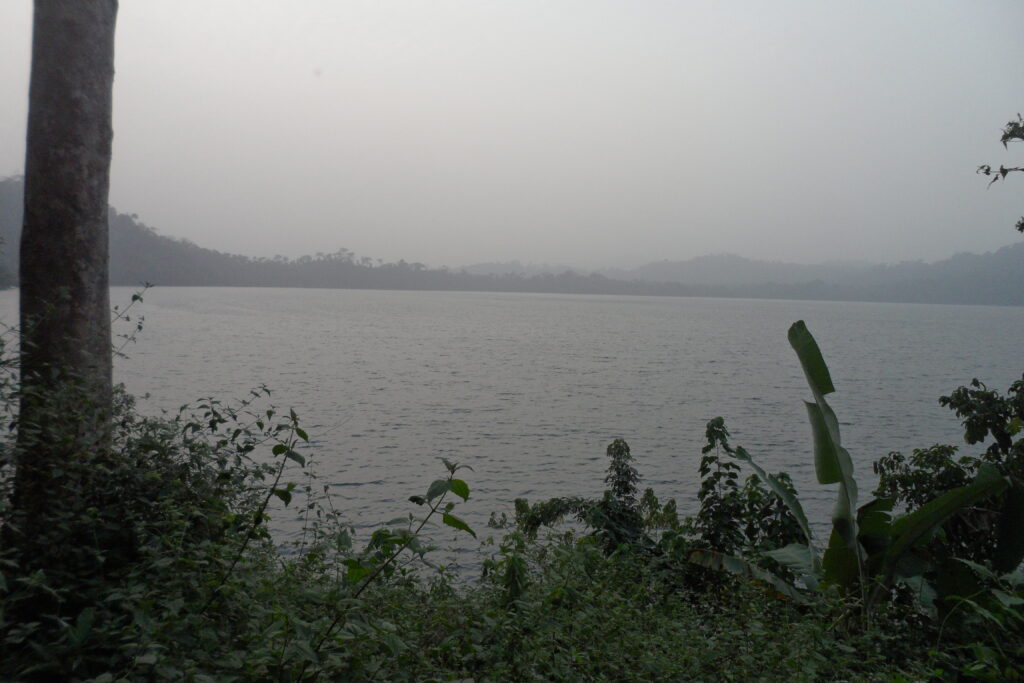Lake Barombi Mbo Forest Reserve was created by Order No.17 of 16/02/1940 (in accordance with Forestry Ordinance. 38 of 1938, published as a supplement to Gazette No. 20 of 25 April 1940; page B.42 of Laws of Nigeria). It assumed the status of a forest reserve under the law No 94/01 of January 1994 and Decree No 95/55 of August 1995 and subsequently declared a Ramsar Site in 2006. Within this forest reserve is found Lake Barombi which is located northwest of Kumba which is the headquarters of Meme Division of the southwest region of Cameroon and is located between latitude 4°39ʹ45.75” of the equator and longitude 9°23ʹ51.63” E, of the Greenwich Meridian and at elevation of 301 m above sea level and about 60 km NNE of the 4100 m high active Mt. Cameroon strato volcano. On old colonial maps the area was known as Elefanten Sea (Elephant Lake), but the elephants living in the area were extirpated due to the trade in ivory. The Lake Barombi Mbo forest reserve is situated in the humid equatorial forest zone of Cameroon. It has primary and secondary forests, with the secondary vegetation dominating. However, the forest is giving way to other land uses, especially agriculture. As the population has been growing, these forests and farmlands have been cleared for settlements, agriculture, and other land use.
Lake Barombi Mbo is the largest volcanic lake in this region. It is one of the oldest radiocarbon-dated lakes in Africa, with the youngest lava flow in it being about one million years old. Until now, 15 species of fishes have been recorded from the lake. Among others, this include; Myakamyaka (Myaka myaka), Pungu (Pungu maclarine), Sarotherodon species (Sarotherodon caroli, Sarotherodon linnellii, Sarotherodone lohbergeri), Stomatepia species (Stomatepia pindu, Stomatepia mariea, Stomatepia mongo) and Konia species (Konia dikume, Konia eisentrauti). The lake is also home to an endemic species of Caridina shrimp. All the endemic fish are seriously threatened by pollution and sedimentation from human agricultural activities. Though commercial fishing is forbidden in the lake nevertheless, extensive subsistence fishing, illegal commercial fishing, use of gamalin for fishing, the use of fertilizers and pesticides on nearby farmlands which drained into the lake has caused declines in the Barombi Mbo aquatic species. As far as terrestrial fauna is concern little or nothing has been documented. The Forest Reserve has no functional Management Plan, the institutional framework that saw the carving out and designation of the Barombi Forest Reserve as a conservation site is still ineffective. All stakeholders need to get engaged to safe this once elephant lake and its ecosystems.

